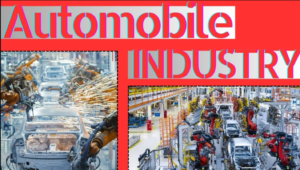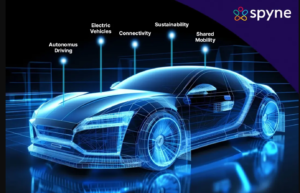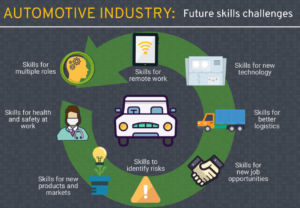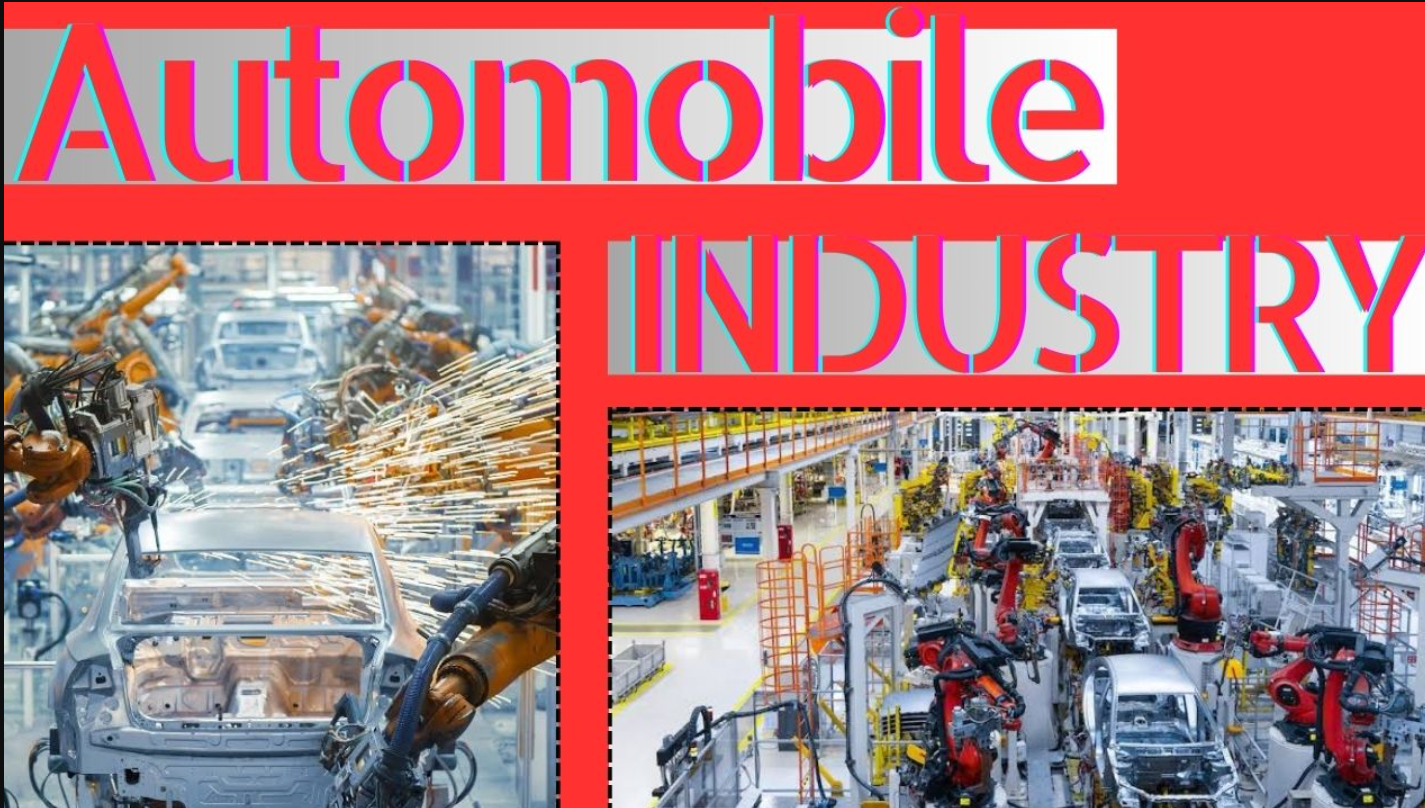The main objective of auto mobile industry is to define a set of strategic lines, for the new comer’s student, fresher who don’t know that what is the actual work of the automobile industries is. The word “automobile” comes from the Greek word autos (αὐτός), meaning “self”, and the Latin word mobiles, meaning “movable”. The word entered the English language from French and was first adopted by the Automobile Club of Great Britain in 1897. The word “automobile” means “self-moving” because cars run on their own power and do not need horses or other power from outside to move.

The automobile industry is one of the largest and most important sectors in the global economy. The automobile industry, also known as the “Automotive Industry” that includes the design, development, manufacturing, marketing, selling, and maintenance of motor vehicles. The automotive industry is a key driver of the global economy and is undergoing a transformation with the introduction of new technologies. Some of these technologies include: Robotics, Additive manufacturing, and The Internet of Things.
1.1 What is the future of automobile industry in India?

The future of India’s automobile industry is promising, with the country poised to become a global leader in the industry. The Indian automobile market is expected to grow to $160 billion by 2027, with a compound annual growth rate (CAGR) of 8.1%. The EV market is expected to grow at a CAGR of 49% between 2022 and 2030. Foreign Direct Investment (FDI) has played a significant role sector growth of automobile industry.
The government’s initiatives, such as the Automotive Mission Plan 2026, the National Electric Mobility Mission Plan 2020, and the Vehicle Scrap page Policy, are expected to help the industry grow. The industry is expected to focus on innovation and sustainability. For example, embedded software will be used to manage the complex system of hardware in vehicles.
India is already a global leader in the automobile industry, producing the world’s largest number of two-wheelers and tractors. It is also the second-largest bus manufacturer and the third-largest heavy truck manufacturer.
1.2 Automobile Industry Trends:

- Some of the current and emerging trends in the automobile industry include:
Electrification
- Manufacturers are using various electrification technologies to reduce fuel consumption and CO2 emissions.
Connectivity
- The Internet of Things (IoT) is making cars connected devices, which improves safety and the driving experience. Connected car features include telematics, vehicle diagnostics, and infotainment systems.
Autonomous driving
- This is a growing area of focus in the automotive industry.
Sustainability
- The automotive industry is shifting towards advanced technologies to reduce environmental impact.
Manufacturing advancements
- Industry 4.0 principles like automation and robotics are expected to increase manufacturing efficiency.
Digital sales and marketing
- Virtual showrooms, e-commerce options, and augmented reality tools are becoming more important to consumers.
New technologies
- The automotive industry is using new technologies like AI, 5G, 3D printing, immersive technologies, and block chain.
1.3 Skills required for automobile industry:

- The automotive industry requires a variety of skills, including technical skills, soft skills, and business skills:
Technical skills
- These include knowledge of automotive mechanics, electronics, and materials engineering. You also need to be able to test components and systems, inspect vehicles, and troubleshoot issues.
IT and software skills
- As vehicles become more electronic, you’ll need to be able to work with IT, software, and programming. You’ll also need to be comfortable using computer-aided design (CAD) and computer-aided manufacturing (CAM) software.
Innovation and design
- You’ll need to be able to create modern and efficient vehicles, which may involve working with lightweight and sustainable materials.
Energy and sustainable mobility
- You’ll need to have expertise in energy storage technologies, renewable energy sources, and charging infrastructure design.
Automation and artificial intelligence
- The automotive industry is moving towards autonomous vehicles, so you’ll need to have knowledge of automation and artificial intelligence.
Supply chain management and logistics
- You’ll need to be able to manage the supply chain, logistics, and process optimization to ensure efficient production and distribution.
Sales and marketing skills
- You’ll need to have skills in marketing, sales, and business strategies.
Communication skills
- You’ll need to be able to communicate clearly, both verbally and in writing. You’ll also need to be able to build rapport with colleagues and customers.
Leadership skills
- You’ll need to be able to take ownership and responsibility for a team or outcome. You have to also be good in the communication.


